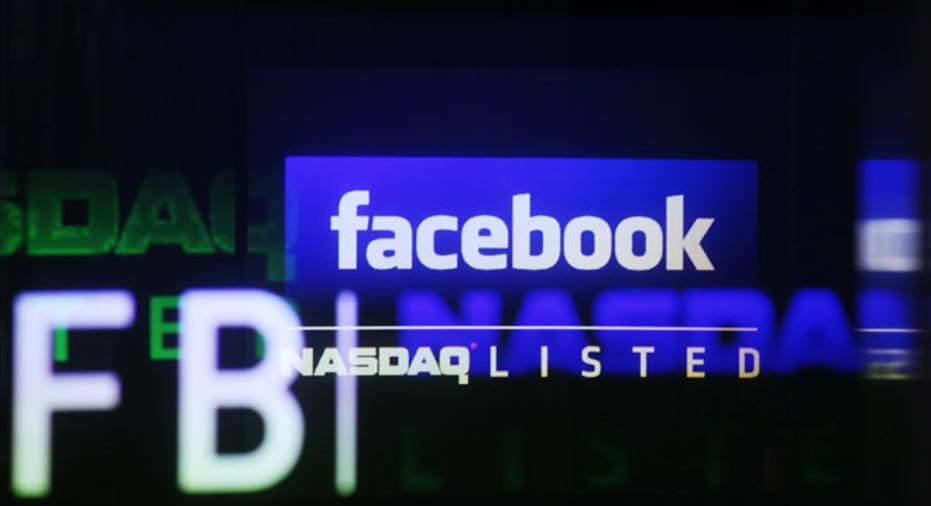Facebook Buying WhatsApp is a Desperate Move

When you first saw the headline – “Facebook buys WhatsApp for $19 billion” – you have to admit, you’re first reaction was that it must be a typo. That’s certainly what I thought. And I bet, for most of you, your second reaction was ... what’s WhatsApp?
No, it’s not a typo. And yes, it is the most ever paid for a venture-backed startup, the biggest acquisition of a Silicon Valley company ever, and a grand total of $19 billion for a 4-year-old company with 55 employees and nominal revenue.
And yes, it is hard to believe.
While everyone debates the merits of the deal and whether Facebook (NASDAQ:FB) overpaid or not, the one thing that stands out for me like an enormous sign in brightly colored neon lights is that I have never seen a large public company broadcast desperation and panic this loud and clear.
That’s something nobody should overlook.
Granted, Leo Apotheker sounded pretty desperate when he stupidly telegraphed plans to dump Hewlett-Packard’s (NYSE:HPQ) $41 billion personal systems group over a year in advance and agreed to buy Autonomy for $11 billion and make it the centerpiece of some crazy scheme to turn H-P into a second rate software firm.
But then, we had all come to expect that sort of nonsense from H-P, considering how long it had floundered and how very hard the company’s dysfunctional board of directors had worked to bring the storied Silicon Valley giant to its knees.
This is much, much different.
This is Facebook, the strapping young Internet giant that just went public 21 months ago and already is the fifth-most-valuable tech company in America. This is Facebook, the social network that, led by its fearless founder Mark Zuckerberg, boasts more active users than any other company on Earth.
Granted, WhatsApp has 450 million highly engaged users and is currently the No. 1 global mobile messaging app. That is, no doubt, a very big deal. But consider this:
Facebook paid about 11% of its market cap for an app. While it appears to be buying users in response to its waning popularity, especially among teenagers, I’m not sure what it buys them.
One of the reasons for the app’s breakout success comes from the motto of founders Jan Koum and Brian Acton, a promise they made to their users: “No ads! No games! No gimmicks!" Likewise, the company doesn’t store messages on its servers or collect user data, either. So how Facebook is going to eventually monetize the investment beyond a small subscription fee is a big unknown.
While some liken the deal to Google’s (NASDAQ:GOOG) acquisition of YouTube back in 2006, that, to me, is a silly comparison. Google paid $1.65 billion for YouTube at a time when its market cap was roughly the same as Facebook’s is now, meaning it was roughly 1% of Google’s market cap. Google was not desperate or panicking when it bought YouTube.
Zuckerberg reportedly proposed the acquisition, and that Koum join Facebook’s board, over dinner at his home in Palo Alto. Just five days later, on Valentine’s Day, the two CEOs banged out a price and sealed the deal, also over dinner at Zuckerberg’s home. I could be wrong, but it doesn’t sound like a whole lot of negotiating went on.
Of course, Facebook overpaid, but let’s not overlook the obvious. When do you overpay for something? When you desperately want it. And that’s exactly what happened here.
Interestingly, I wasn’t the slightest bit surprised to see Rob Enderle – one of the most highly respected analysts in Silicon Valley and a guy who I have the utmost respect for – say essentially the same thing on a news program today. "This is crazy money. I think they massively overpaid for this. They've done it because they are desperate,” Enderle said.
He went on to explain how Facebook is “worried that they are bleeding users” and that they can’t remedy that situation by buying users of another application. He also said it reminds him so much of the flawed strategies of the dotcom era that, “it’s actually giving me chills.” I know what you mean, Rob. It gives me chills too.
So, if Facebook is desperate, what exactly does that mean? First, it sends that message to customers, partners, and acquisition targets that are astute enough to pick up on it. And that’s never a good thing. Second, it can lead to overreaction to erroneous assumptions or limited data and that generally leads to big mistakes.
This deal may very well be one of them.
On the other hand, desperation can also lead to bold, innovative decisions. When we’re desperate, some of us look fear right in the eye and do things we would have been too cautious to do otherwise. And some of those moves end up being brilliant, at least in hindsight.
This deal may very well be one of them.
Which is it? It’s definitely a high-risk move and, while nobody knows for sure, it looks very much like an enormous mistake to me.



















